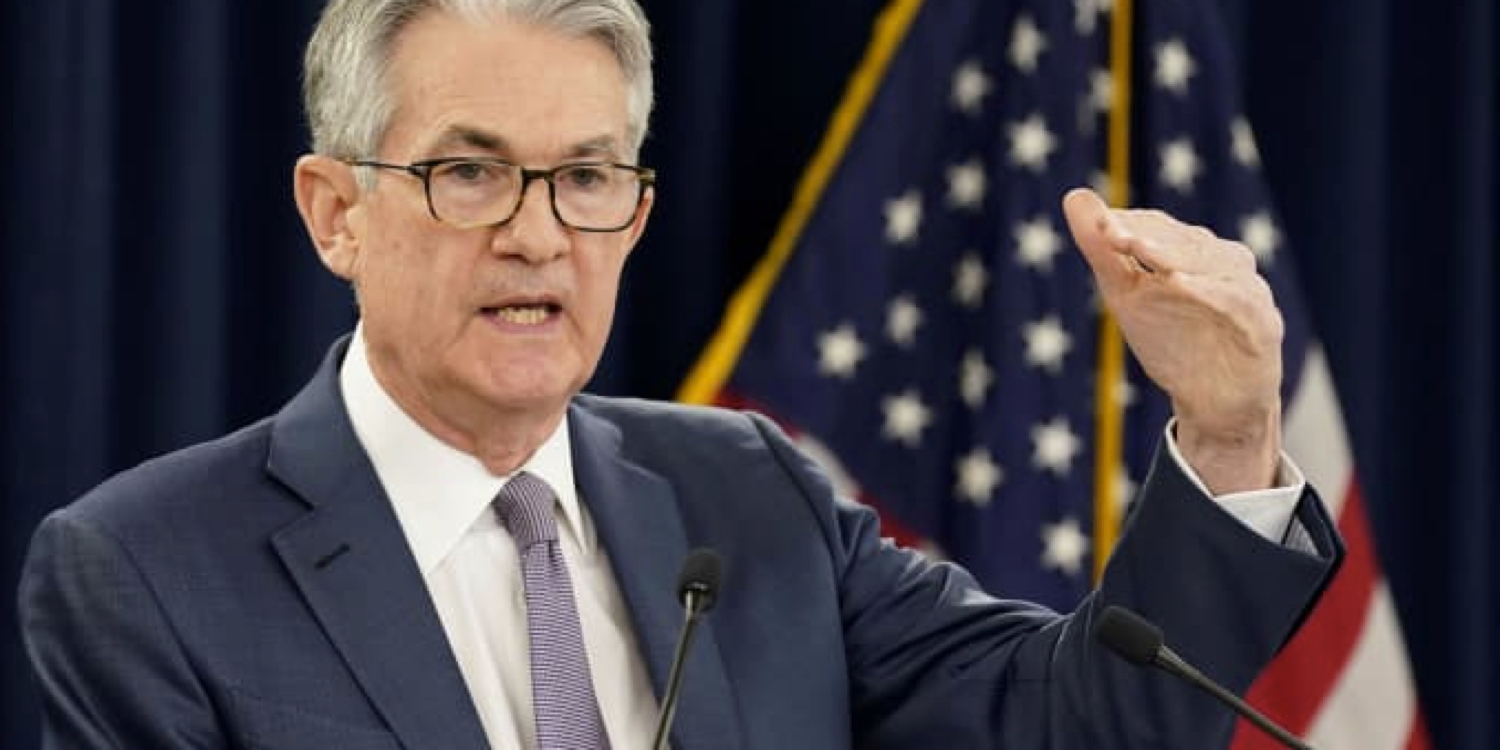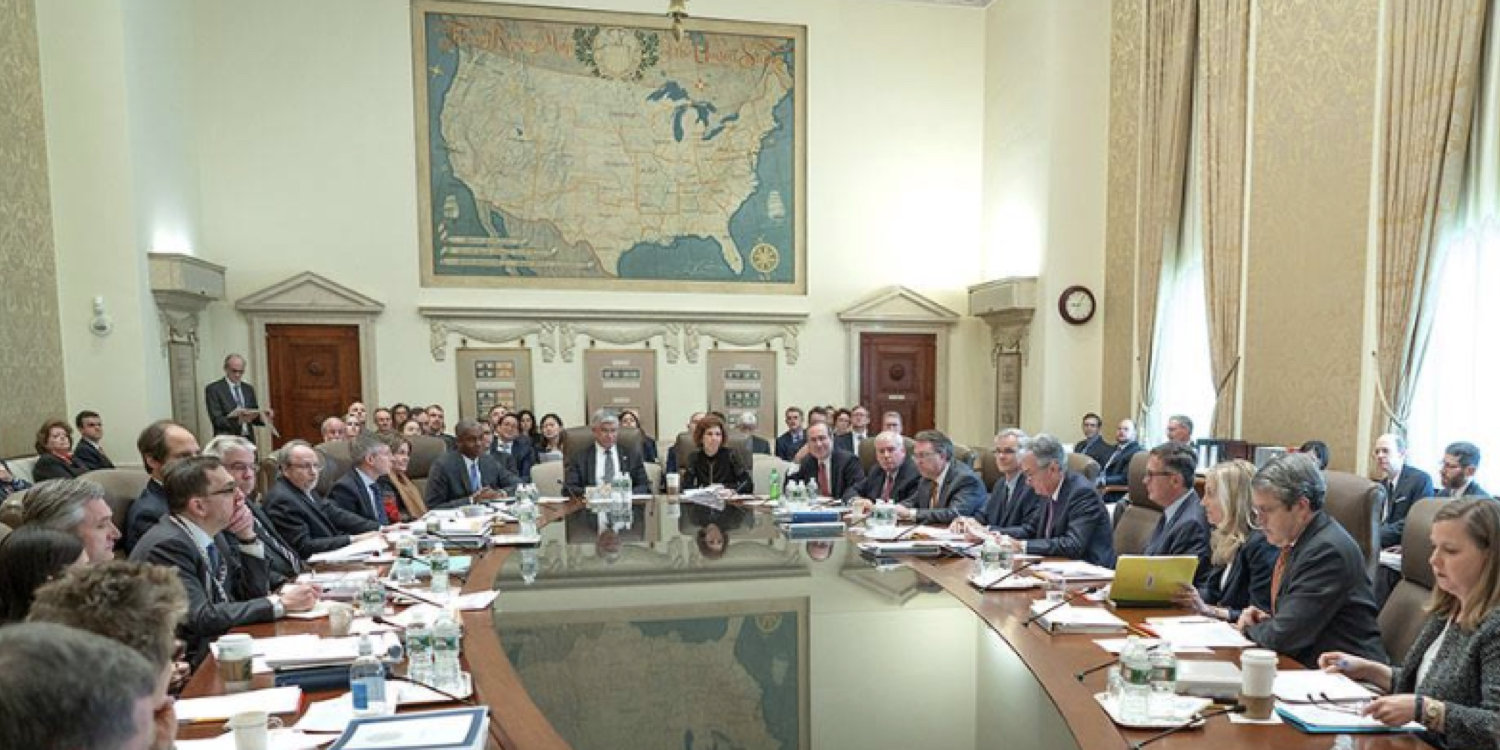Spending, housing affordability, and overall consumer demand are in the crosshairs of the Federal Reserve
Continue readingHow the Fed’s rate hike pause will impact the HECM
How the Fed’s rate hike pause will impact the HECM
Continue readingWhy the Fed will break the U.S. housing market
“The Fed will push until something breaks”. That’s been a popular line among economists and analysts according to a recent column in Fortune
Continue readingThe Fed Announces Two Big Changes for 2022
Inflation is at a 39-year high and it appears not to be transitory. As a result, last Wednesday the Federal Reserve announced last Wednesday they will reduce their bond purchases twice a fast as previously planned and plans on raising interest rates three times in 2022…
Continue readingRate hike, equity sharing, divorce, and family loans
Despite challenges there is reason for measured optimism
HECM originators in the state of Connecticut have their own October surprise. The state’s governor signed into law Senate Bill 150 which goes into effect October 1st, 2018. It requires that prospective borrowers receive HECM counseling and provide a certificate of completion to the lender before any final and complete application is accepted. Good record keeping is essential as Connecticut HECM lenders must keep the counseling certificate for ‘the term of the reverse annuity mortgage loan’. An interesting choice of words. Any violation of the new law will be considered an unfair or deceptive trade practice. Our friends in Connecticut will want to mark their calendars.
 Divorce is perhaps one of the most devastating events for one’s retirement. A recent column at PlanSponsor.com cites a study by the Center for Retirement Research at Boston College that shows the net worth of non-divorced households is about 30% higher than divorced households. Those at risk of being unprepared as measured by the Retirement Risk Index rises 6 percentage points for divorced men but is statistically insignificant for divorced women. One reason given for this difference is that single women are more likely to own a house which they can use for a reverse mortgage according to the study. Perhaps now is a good time to consult with your local family law attorneys on how the HECM can help mitigate the impacts of divorce.
Divorce is perhaps one of the most devastating events for one’s retirement. A recent column at PlanSponsor.com cites a study by the Center for Retirement Research at Boston College that shows the net worth of non-divorced households is about 30% higher than divorced households. Those at risk of being unprepared as measured by the Retirement Risk Index rises 6 percentage points for divorced men but is statistically insignificant for divorced women. One reason given for this difference is that single women are more likely to own a house which they can use for a reverse mortgage according to the study. Perhaps now is a good time to consult with your local family law attorneys on how the HECM can help mitigate the impacts of divorce.
More homeowners are making peace with appreciation sharing loans. A MarketWatch column last week tells the story of Mike Lindsay, an Orange County widower who found himself devastated with medical bills and childcare costs in the wake of his wife’s death. His surest bet turned out to be his house. Unable to refinance his home which was valued at $1.2 million he turned to Unison. The company offered Lindsay $200,000 in exchange for a share of the future appreciation of his home as part of its HomeOwner program. Karen Kaul with the Urban Institute who has discussed reverse mortgages reverse mortgage on several occasions said “it’s good to see people experiment with this. I hope this eventually takes off.” He did add his specific concerns about the lack of consumer protection in such arrangements. The question is, will more senior homeowners find such an arrangement an attractive alternative to a reverse mortgage?
We often hear financial pundits espousing the pitfalls of a reverse mortgage, but few explain the risks of loaning your elderly parents money to stay in their home. The Pittsburgh Post Gazette featured two elder law attorneys who cautioned readers of the risks involved when lending money to parents- namely being an ‘unsecured creditor’ This means if their parents receive any state assistance for nursing or homeware services the kids risk not being repaid as the state’s lien takes precedence. What’s a better approach? “Parent and son could have entered into a simple loan documentation agreement whereby parent signs a note for the loan tied to a mortgage which secures the debt to the parent’s home. Result under this improved arrangement: son gets $100,000, state gets whatever is left after that.”
In our last story, the Federal Reserve has raised their 2018 economic outlook forecasting a median real GDP of 2.8 percent for the year and consequently increasing rates. The Fed raised it short term rate a quarter of a percentage point to 2% and hinted at two more hikes which would bring the total of four interest rate increases in 2018. Watch your rate sheets closely in the coming weeks and months.
The Sky Is Not Falling with Interest Rate Hikes
Interest rate hikes are here. How to cope?
 The Federal Reserve has already increased the benchmark federal funds rate and has telegraphed their intention for additional hikes this year. Do reverse mortgage lenders and borrowers need to worry?
The Federal Reserve has already increased the benchmark federal funds rate and has telegraphed their intention for additional hikes this year. Do reverse mortgage lenders and borrowers need to worry?
Be careful what you wish for. Monetary policy dictates that as the economy improves, interest rates are adjusted to more normative levels in the efforts to curb inflation and prevent market bubbles triggered by cheap money.
Reverse mortgage borrowers reluctant to pay higher closing costs were often won over with lender pricing concessions. IBIS’s weekly rate updates show the gradual erosion of lender margins, eroding the ability of HECM lenders to reduce origination fees or to cut other costs….
Download the video transcript here.
Big Changes Ahead in 2017
3 reasons why you should expect big changes in 2017
The political landscape changed with a sudden seismic shift felt across the world. Domestically the impacts of a new populist, small government philosophy may manifest themselves in a variety of ways that will impact reverse mortgage lending this year.
Slashing Domestic Spending:
The Trump administration is contemplating substantial cuts in excess of $6 billion dollars from HUD’s budget, according to documents obtained by the Washington Post. While alarming to some, would such cuts, if realized, substantially impact the Home Equity Conversion Mortgage? The short answer is no as most are speculated to be directed at housing initiatives such as Section 8, community housing projects and assistance programs for elderly low income Americans. Some industry participants however, wonder if continued budget subsidies for the HECM program would place the program in the crosshairs of the federal government’s efforts to reign in domestic spending.
 Trump vs. The Fed:
Trump vs. The Fed:
Will Trump regret his comments about the Fed? Throughout his presidential campaign, Donald Trump criticized the Federal Reserve and it’s chair Janet Yellen, of maintaining artificially low interest rates to help Hillary Clinton. In December the Fed raised interest rates on quarter of a percent, the second rate increase since June 2006. Central banks have been reluctant to raise interest rates in the wake of the 2008 financial crash, and home prices have consequently been on a tear. Today, the Fed is projecting three rate hikes this year alone. The impact would be felt by
Interest Rate Cliffhanger
[vimeo id=”139756544″ width=”625″ height=”352″]
The Potential Impacts When the Fed Raises Interest Rates

It’s been a cliffhanger of sorts. The U.S. economy appears to be recovering yet their are fundamental issues that are not resolved. In the wake of the financial crisis of 2009 interest rates have been held at historic lows. Good news for reverse mortgage borrowers and lenders alike.
For several months the word on the street has been that the Federal Reserve would be increasing short term interest rates. Last Thursday the Fed announced postponing any rate increases until later this year, perhaps waiting for improvements in the labor market. Until then the question is what would the impact be for the federally-insured reverse mortgage?
Jerry Wagner of Ibis Software said “Short-term rate hikes of 0.5% or 1% will have little effect. Long term rate hikes have a big effect as Principal Limit factors will be smaller.” Today Home Equity Conversion Mortgage interest rates are keyed to the…
Download a transcript of this episode here.
Looking for more reverse mortgage news, commentary and technology? Visit ReverseFocus.com today.
Is there a silver lining?
UPDATE: On Thursday March 31st the US Court of Appeals granted a temporary administrative stay delaying the rule at least until April 5th at which time there will be a hearing.
Continue readingGoodbye HVCC?

The Federal Reserve has passed an interim rule (read more here) that effectively eliminates the controversial HVCC (Home Valuation Code of Conduct). Many originators and industry professionals agree that appraisal independence is needed but not on how to achieve that end. Without the HVCC will much really change? What are your thoughts?
Post your comments below…






